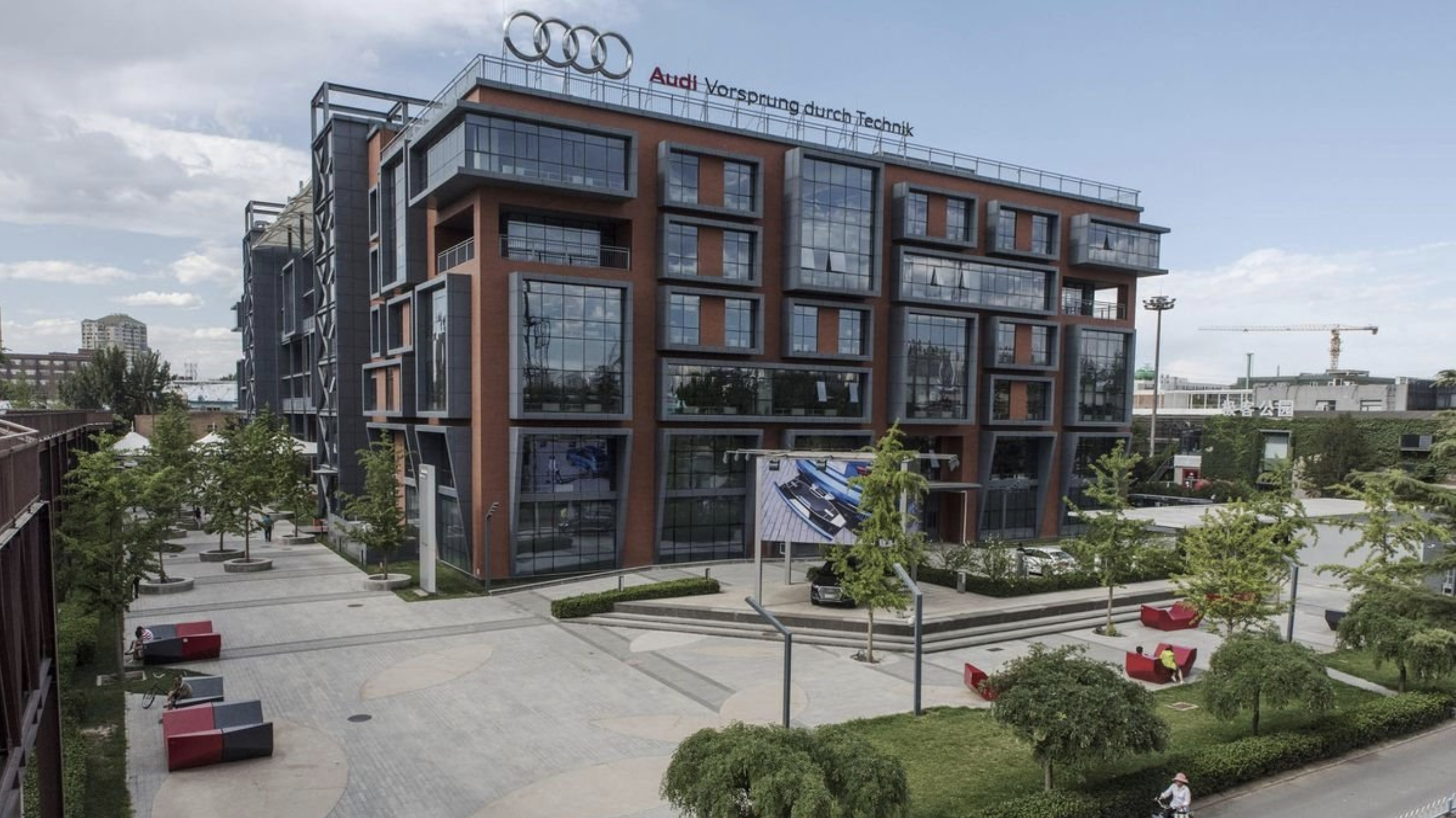798 Arts District

798 Arts District
Developers:
* Urbis Development
* Beijing Sevenstar Group
Designer: Sasaki
Location: Chaoyang, Beijing, China
Factory 798 was originally conceived in the 1950s as a weapons manufacturing base in the outskirts of Beijing, where it operated with a large workforce for many years. However, as Chinese cities underwent rapid urbanisation following China’s economic opening in the 1980s, large-scale, low-density industrial sites like 798 became obsolete in neighbourhoods that had quickly become inner-city locations.
The decision to repurpose 798 was therefore inevitable, but the government’s plan to demolish and rebuild, most likely as a residential suburb, met with stiff resistance from those who saw the old factory buildings – designed originally by East Germany’s Bauhaus School of Design – as a unique architectural and cultural asset.

After considerable pressure from a variety of domestic and international sources, the government ultimately acknowledged the site’s heritage value, took the redevelopment option off the table, and opted instead to reinvent it as a base for Beijing’s edgy arts scene. As such, 798 became significant not only as an exercise in adaptive reuse; it was also a landmark event in regulatory terms. As one locally-based juror observed: “This was the very first time in China where the lead [i.e., for land-use purposes] was taken not by the government but by private organisations and individuals.”
Starting out in around 2003 as a small collection of bohemian art studios, 798’s collection of abandoned factory buildings were transformed, over the course of a decade, into a warren of galleries, shops, museums, event spaces, and trendy cafes. Its tremendous success in the following years means that the site is today the third most visited destination in or near Beijing after the Forbidden City and the Great Wall.


Given the number of similar industrial sites in other Chinese cities, 798 has created a replicable model for adaptive reuse that has been widely embraced elsewhere in China. Four guiding principles were established:
- Emphasise the arts in general. Instead of simply preserving former factory buildings as static galleries ands museums, developers welcomes a range of creative industries and uses, including an arts school and media, design, advertising, and fashion offices.
- Retain key buildings and landscapes – including a gasworks, railroad, and overhead gantries – in order to preserve the industrial aesthetic.
- Make the district visible and accessible. Streets, alleyways and courtyards should be accessible and pedestrian friendly.
- Encourage variety of uses. The focus should not be simply on creating gallery and event spaces, but also on complementary uses such as retail, restaurants, parks and plazas. New development parcels around the perimeter of the site provides additional density.
While the financial performance of the project is impossible to know given the heavy involvement of the local government, all of the land in the 798 site is still owned by the original factory. Instead of selling it and using the profits to fund its pension programme, it therefore continues to collect rent from occupiers to pay pensions of former workers.
Despite its resounding success, the site’s long-term future as an arts destination remains threatened by the prospect of redevelopment, given especially its strategic location next to Beijing’s Airport Expressway. In addition, an element of gentrification has crept in over time as the original community of impoverished artists has been gradually replaced by more established galleries, and as R&D departments of national and multinational companies also took up residence. 
Nonetheless, 798’s longer-term legacy as a template for revitalisation of former industrial sites will outlast it. As one juror said: “It sets a good example for other areas in China and remains probably the leading example globally of an industrial facility turned into creative arts space – the authenticity it communicates and its ability to regenerate and incorporate new ideas and influences is fantastic.”
